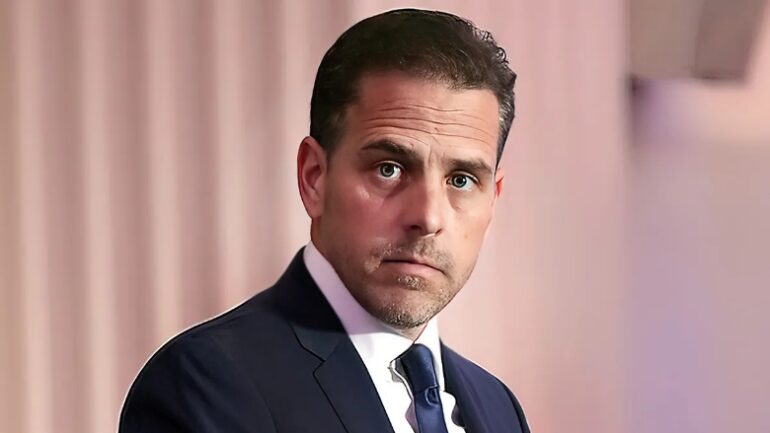🔴 Website 👉 https://u-s-news.com/
Telegram 👉 https://t.me/usnewscom_channel
A bombshell claim has surfaced regarding the controversial censorship of the Hunter Biden laptop story. According to Chris Richmond, CEO of the fact-checking organization Snopes, it wasn’t independent fact-checkers that pressured Facebook to suppress the story—it was the federal government.
Richmond revealed this startling information during an appearance on MSNBC’s Velshi. He addressed the widespread belief that fact-checking groups had played the central role in Facebook’s decision to limit the story’s reach.
“Let’s look at the most famous example of Facebook censoring content: the Hunter Biden laptop story,” Richmond explained. “We say it was the fact-checkers, right, who told Zuckerberg to limit the reach of that? No, it was the government.”
He added, “Facebook complied with the government, and then the fact-checkers get the blame.”
Richmond’s revelations come on the heels of Facebook founder Mark Zuckerberg’s recent announcement to phase out the use of politically biased fact-checking organizations. Zuckerberg argued that these groups have failed to ensure neutrality in content moderation.
Richmond criticized Zuckerberg’s decision, suggesting it was motivated more by political expediency than a genuine commitment to free speech.
“If Kamala Harris had won, would he be taking any of these same actions now? No,” Richmond stated. “He complied with what the government wanted then and is complying with what the new administration wants now.”
While Richmond expressed concerns about removing fact-checkers, he voiced cautious support for Zuckerberg’s proposed implementation of a “community notes” system, similar to the feature used by X (formerly Twitter).
“I agree that the community note system is great. It should be transparent,” Richmond said. “But the problem is that Facebook has this black-box system where they can do whatever they want and just pass off the blame.”
Richmond argued that while community-driven notes might enhance transparency, removing fact-checkers entirely could create new challenges in maintaining content integrity.
Richmond’s allegations echo claims Zuckerberg made in a recent interview with Joe Rogan. The Facebook CEO revealed that figures from the Biden administration aggressively pressured his company to suppress content, even when it was accurate.
“These people from the Biden administration would call up our team and scream at them and curse,” Zuckerberg stated. “Then, all these different agencies and branches of government started investigating and coming after our company.”
These comments paint a troubling picture of government overreach and its influence on social media companies during critical moments of public discourse.
The Hunter Biden laptop story remains a flashpoint in discussions about media bias, censorship, and election interference. Initially reported by The New York Post in October 2020, the story detailed alleged emails and documents from Hunter Biden’s laptop. These raised questions about his business dealings and potential connections to his father, then-presidential candidate Joe Biden.
However, social media platforms, including Facebook and Twitter, quickly moved to suppress the story, claiming it could be part of a disinformation campaign. Posts were flagged, limited in reach, or outright banned.
Critics argued that such censorship stifled public debate and shielded the Biden campaign from scrutiny during a pivotal election.
Richmond’s statements add to growing concerns about the interplay between government agencies, media outlets, and tech companies in controlling information. He warned that the suppression of the Hunter Biden story exemplifies how political agendas can undermine free expression and journalistic independence.
“Ultimately, this is about accountability,” Richmond said. “The government’s influence on social media companies raises serious questions about free speech and the public’s access to information.”
The decision to move away from fact-checkers marks a significant shift in how Facebook plans to handle content moderation. However, the broader issue of transparency and resistance to external pressure remains unresolved.
“If social media platforms want to rebuild trust, they need to focus on transparency and ensure their policies are free from undue influence, whether from governments or private entities,” Richmond concluded.
The controversy surrounding the Hunter Biden laptop story and its censorship highlights the urgent need for greater accountability in the digital age. Richmond’s revelations may serve as a wake-up call for platforms, governments, and users to reconsider how information is managed in a world increasingly shaped by algorithms and political interests.

